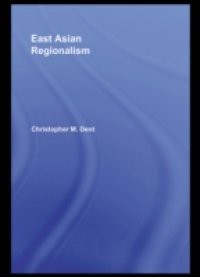East Asia is a region that holds much fascination for many people. It is one of the world's most dynamic and diverse regions and is also becoming an increasingly coherent region through the inter-play of various integrative economic, political and socio-cultural processes. Such a development is generally referred to as 'regionalism', which itself has become a defining feature of the contemporary international system, and this book explores the various ways in which East Asian regionalism continues to deepen. Focusing on the main themes of the East Asia region and the study of regionalism, economic regionalism and East Asia's new economic geography, Southeast Asia and the Association of Southeast Asian Nations (ASEAN), trans-regionalism, East Asia's new free trade agreement trends and key transnational issues in East Asia such as international migration and energy security, East Asian Regionalism will be an essential text for courses on East Asian regionalism, Asian politics and Asian economics. Key pedagogical features include: end of chapter 'study questions' case studies that discuss topical issues with study questions also provided useful tables and figures which illustrate key regional trends in East Asia extensive summary conclusions covering the chapter's main findings from different international political economy perspectives.

